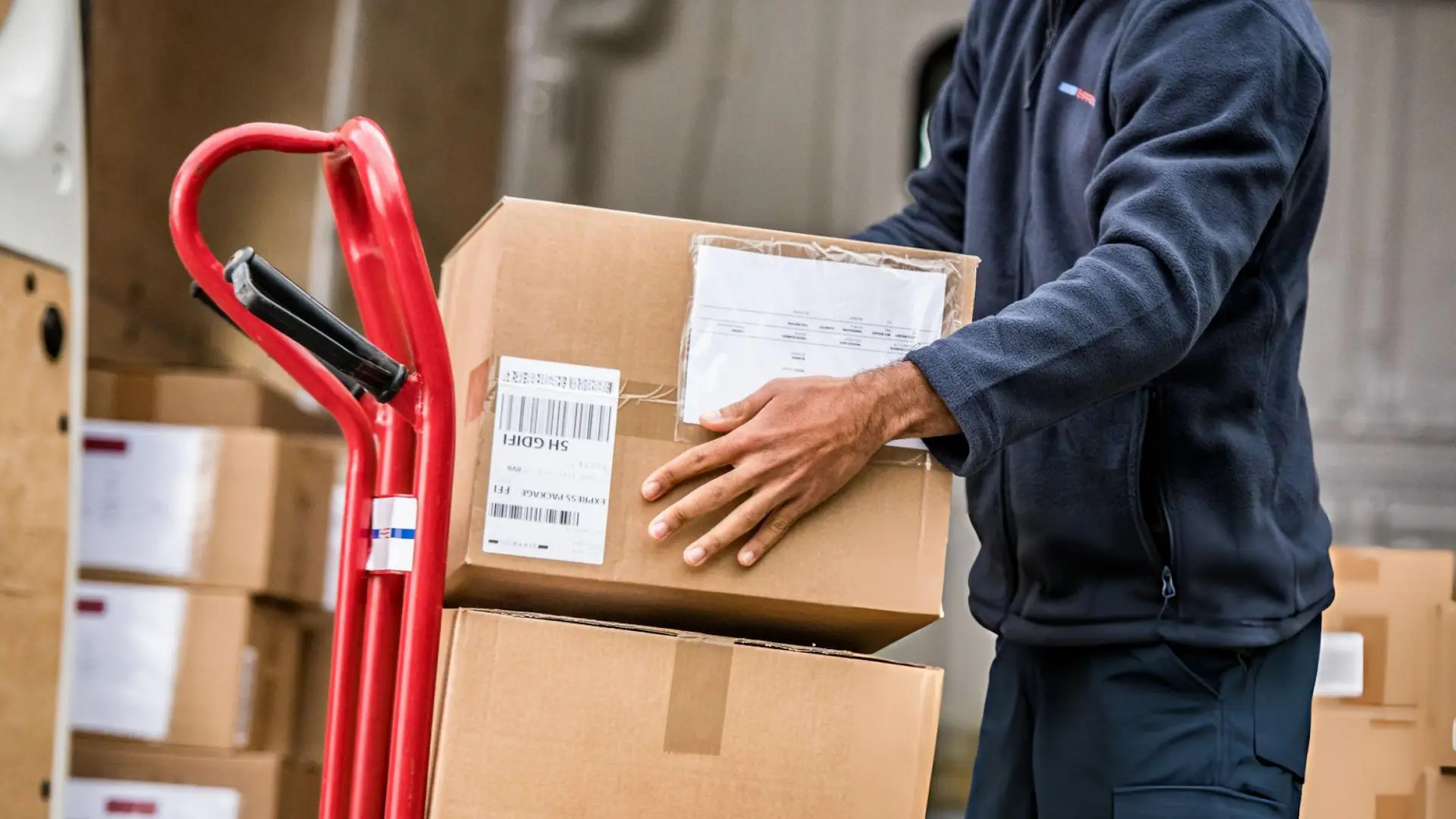Planning for International Shipping: Tips for Global Holiday Sales

The holiday season is one of the busiest and most profitable times of the year for businesses, especially in e-commerce. As companies gear up for the rush, planning for international shipping becomes a critical component of ensuring smooth global sales. Whether you're expanding into new global markets or scaling your existing cross-border trade, the key to successful holiday sales lies in meticulously preparing your shipping logistics and customer experience.
This guide will walk you through essential tips for preparing your business for global holiday sales. From understanding customs regulations to managing shipping delays, we’ll cover everything you need to know to optimize your strategy and boost customer satisfaction.
Why International Shipping Matters for Holiday Sales
As e-commerce continues to grow, more consumers around the world are purchasing gifts from abroad during the holidays. Offering international shipping allows you to tap into global markets, attract a wider customer base, and boost your sales forecasts. However, handling cross-border trade efficiently requires careful planning to ensure timely deliveries, keep costs low, and provide a seamless experience for your customers.
Common International Shipping Challenges
- Shipping delays due to high demand or customs clearance issues
- Managing shipping costs across different countries
- Navigating customs regulations and tariff considerations
- Offering multiple delivery options to meet customer expectations
- Ensuring product compliance in different regions
By planning ahead and addressing these challenges, your business can increase its chances of success in the competitive holiday season.
How to Plan for International Shipping During Holiday Sales
To ensure a smooth holiday shopping experience for your global customers, here are the key steps you should follow when preparing for international shipping.
1. Conduct Market Research and Analyze Buyer Preferences
Before you start shipping globally, it’s essential to conduct thorough market research to understand the preferences, demands, and expectations of your international audience. Consider:
- Buyer psychology: What factors influence purchasing decisions in each market?
- Seasonal demand: Are there specific holiday trends in the regions you’re targeting?
- Payment options: Do you offer payment options that cater to your global customers?
Researching buyer preferences will help you tailor your e-commerce strategy and plan for multi-channel sales that resonate with each market.
2. Understand Customs Regulations and Import/Export Laws
Every country has its own customs regulations and import/export laws that govern how goods are shipped and received. Failing to comply with these rules can lead to shipment delays or even seizure of your products. Make sure you:
- Research customs regulations for the countries you're shipping to
- Accurately complete all necessary customs forms
- Understand tariff considerations and factor them into your shipping costs
Compliance with these regulations will ensure your products move smoothly through international borders and reach your customers on time.
3. Choose the Right Delivery Options and Shipping Partners
Providing multiple delivery options can improve the customer experience and increase customer satisfaction. Depending on the regions you’re targeting, consider working with freight forwarding companies or partnering with fulfillment centers that specialize in international shipping. Look for shipping partners who offer:
- Fast and reliable delivery to minimize shipping delays
- Transparent tracking shipments so customers can monitor their orders
- Competitive rates to help manage your overall shipping costs
Building relationships with trusted shipping partners ensures you’re well-equipped to handle the holiday rush, and having multiple delivery options allows customers to choose the method that best suits their needs.
4. Optimize Your Packaging Solutions
Packaging is more than just a means of protecting your products—it can have a big impact on your shipping expenses and customer experience. For international shipments, it’s crucial to optimize your packaging solutions to ensure products arrive safely while keeping costs down. Key considerations include:
- Using packaging materials that minimize weight and size to reduce shipping costs
- Ensuring that products are securely packed to avoid damage during transit
- Meeting packaging regulations for different countries
Thoughtful packaging not only protects your products but also enhances your brand’s image in new markets.
5. Calculate Shipping Costs Accurately
One of the biggest challenges with international shipping is managing shipping costs. The total cost will depend on factors such as:
- Destination country
- Package weight and size
- Delivery speed and chosen shipping options
Be transparent about your shipping costs upfront, and consider offering incentives such as free shipping on minimum order amounts to encourage more purchases.
6. Prepare for Shipping Delays and Plan for Flexibility
The holiday season often sees an increase in shipping delays, especially with international orders. While you can’t always avoid delays, you can plan for them by:
- Communicating clear delivery times on your website
- Offering express shipping options to meet tight deadlines
- Partnering with reliable service providers to minimize disruptions
Being proactive about potential delays ensures customers know what to expect, helping to maintain customer satisfaction even when challenges arise.
7. Invest in Shipping Insurance and Return Policies
To safeguard your business from the financial risks associated with lost or damaged packages, consider investing in shipping insurance. Additionally, offering clear return policies for international customers will give them peace of mind when shopping from abroad.
8. Utilize Shipping Software for Seamless Order Fulfillment
Using the right shipping software can streamline your order fulfillment process, especially when managing multiple international orders during the holiday season. Shipping software helps:
- Automate order tracking and notifications
- Print labels and customs forms easily
- Integrate with your e-commerce platform for a seamless user experience
By optimizing your order fulfillment with technology, you can increase efficiency and reduce the chance of errors.
Enhancing Customer Experience and Brand Visibility
9. Language Localization and Customer Support
Offering a personalized experience for your international customers goes beyond just shipping. Consider language localization for your website, customer support, and marketing materials. When customers can browse and shop in their own language, it enhances their user experience and boosts their confidence in your brand.
10. Promotional Strategies for Global Markets
Create tailored promotional strategies to appeal to customers in different regions. This could involve:
- Offering region-specific discounts or free shipping promotions
- Running holiday-themed campaigns that align with local customs
- Using multi-channel sales approaches to reach global customers
11. Manage Seasonal Inventory and Sales Forecasts
Accurate inventory management is crucial during the holiday season, especially when shipping internationally. A surge in orders can quickly deplete stock, so make sure you:
- Forecast demand based on historical data and market research
- Coordinate with fulfillment centers to ensure timely restocking
- Keep customers informed about product availability to avoid disappointment
12. Provide Exceptional Customer Support
International customers may have more questions and concerns about delivery times, payment options, or the return process. Offering exceptional customer support, including quick response times and clear communication, helps build trust and enhances buyer preferences for your brand.
Preparing Your Supply Chain and Avoiding Shipping Delays
The efficiency of your supply chain management can make or break your holiday sales performance. Here’s how to ensure everything runs smoothly.
13. Work with Reliable Service Providers and Freight Forwarding Partners
Choosing reliable service providers and freight forwarding companies can help you avoid potential disruptions in your supply chain. These partners should:
- Have experience with holiday shipping demand
- Offer expedited shipping solutions when needed
- Provide real-time updates on shipments
14. Factor in Tariff Considerations and Global Compliance
Each country has its own tariff considerations and compliance requirements, especially during peak holiday seasons. Factor these costs into your overall pricing and ensure your products meet all regulatory requirements for product compliance in different markets.
15. Develop Contingency Plans for Shipping Delays
Despite the best planning, unexpected events such as extreme weather or customs backlogs can cause delays. To avoid impacting customer experience:
- Develop contingency plans that include alternate shipping routes or carriers
- Offer customers expedited or alternate delivery methods if delays occur
- Maintain communication with customers to set realistic expectations
By preparing for potential disruptions, you’ll be better equipped to handle the challenges of global markets during the holiday season.
Conclusion
Planning for international shipping during the holiday season can be challenging, but with the right strategy, you can ensure smooth order fulfillment and satisfied customers. From understanding customs regulations to optimizing your packaging solutions, following these tips will help you navigate the complexities of cross-border trade while boosting your holiday sales.
By staying ahead of shipping logistics and managing expectations with clear communication, you can elevate your brand’s visibility and establish a strong presence in global markets. As you prepare for the holidays, remember that meticulous planning and flexibility will be key to meeting demand and delivering an exceptional customer experience.
FAQ: Planning for International Shipping During Holiday Sales
What are the best ways to reduce international shipping costs during holiday sales?
Reducing international shipping costs can be achieved by optimizing your packaging solutions to minimize weight and size, negotiating better rates with shipping partners, and offering tiered delivery options like free shipping for orders over a certain amount. Leveraging fulfillment centers close to your target markets can also help cut costs and improve delivery times.
How do I ensure my products comply with international customs regulations?
Ensuring compliance with customs regulations involves understanding the import/export laws of each country you're shipping to. Accurately filling out customs forms, adhering to specific packaging and labeling requirements, and being aware of tariff considerations are crucial steps to avoid shipping delays and additional fees.
What are the most reliable shipping methods for international holiday orders?
For international holiday orders, it's important to offer multiple delivery options. Standard shipping via reputable carriers is often reliable, but offering express shipping can help meet tight delivery times during the holiday rush. Partnering with a trusted freight forwarding service or shipping software provider can also ensure smooth order fulfillment.
How can I prevent shipping delays during the busy holiday season?
To prevent shipping delays, plan ahead by partnering with reliable service providers, understanding regional holiday schedules, and preparing for increased seasonal demand. Clearly communicating estimated delivery times to customers and offering expedited shipping options can also help minimize frustration.
How does inventory management affect international holiday shipping?
Effective inventory management is crucial for international holiday shipping. Maintaining proper stock levels based on sales forecasts and coordinating with your fulfillment centers ensures you can meet demand. Regularly updating your website with stock availability and delivery expectations will also keep customers informed and satisfied.

.svg)
.svg)
.svg)




